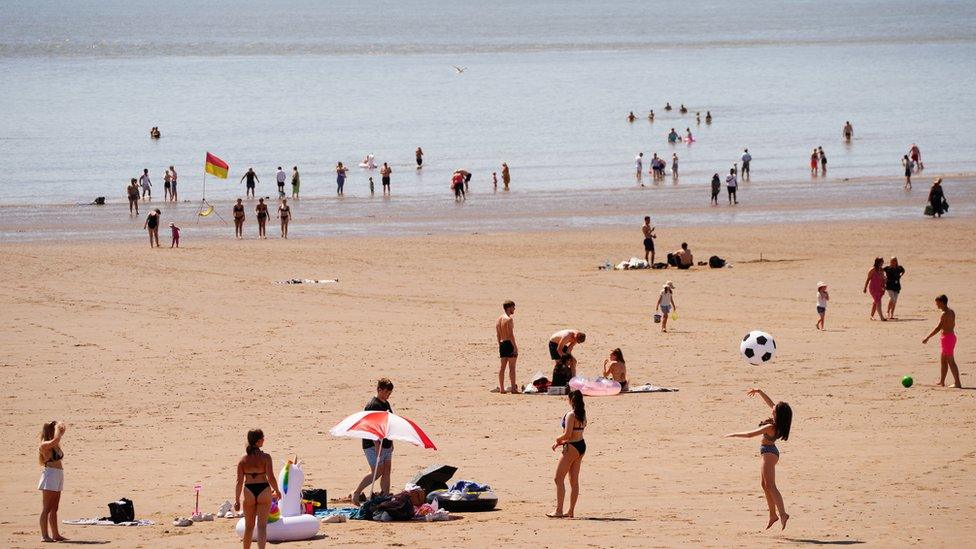Northern Ireland weather: Just over 50% of normal rainfall for July
- Published
- comments
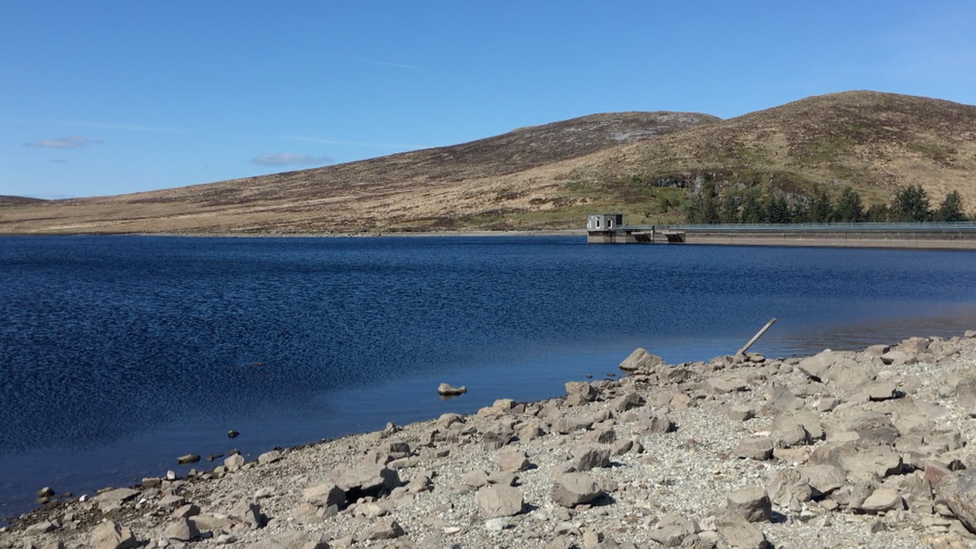
Last year in June, Spelga Dam was 3.3m below its top water level
It has been the driest July in more than 20 years in Northern Ireland, with just over 50% of the normal monthly rainfall.
A total of 45.8mm of rain was recorded for the whole month. It has not been as dry since 2000 when just 40mm of rain fell.
That is despite serious flooding across the north west on 23 July.
Six people were rescued in Londonderry and Strabane.
Northern Ireland also had its seventh dullest July on record, according to the Met Office, with just 95.7 hours of sunshine.
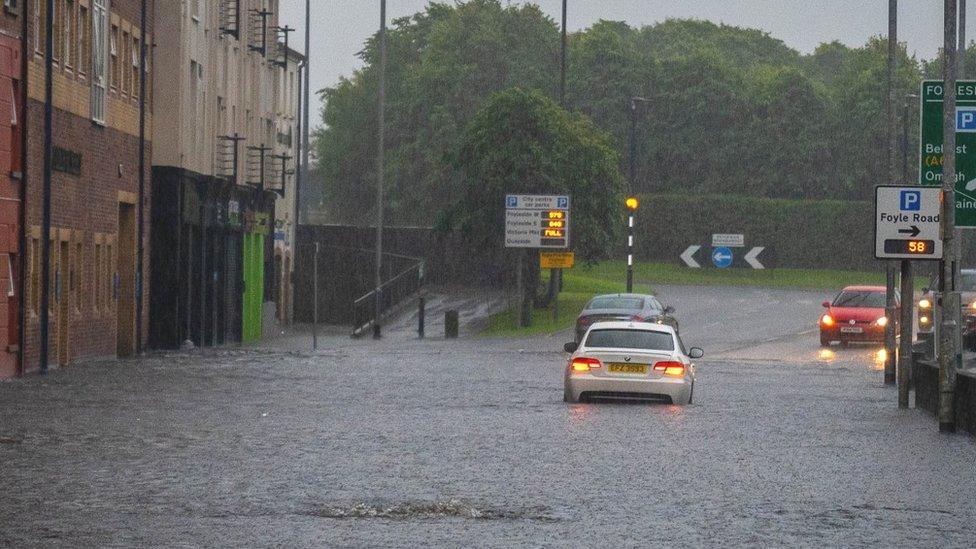
A number of roads in Derry were flooded due to the heavy rain on 23 July in the north west
An academic from Queen's University, Belfast, has warned that further such flooding is likely as climate change takes hold.
In fact, 46.4mm of rain was recorded in Castlederg, County Tyrone, that day - more than half of what is expected during the entire month of July (86.9mm).
Some parts of Northern Ireland have been wetter than others.
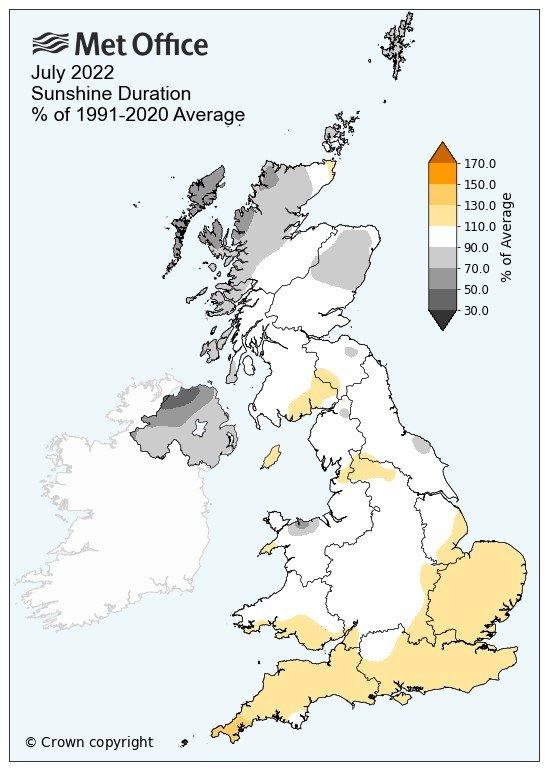
Northern Ireland also had its seventh dullest July on record, according to the Met Office
Armagh, for example, recorded just 24mm of rain in July, whereas Castlederg recorded more than three times that amount at 76mm.
So far this year, Northern Ireland has recorded 538.1mm of rain, just 9mm more than last year when Northern Ireland Water was considering a hosepipe ban.
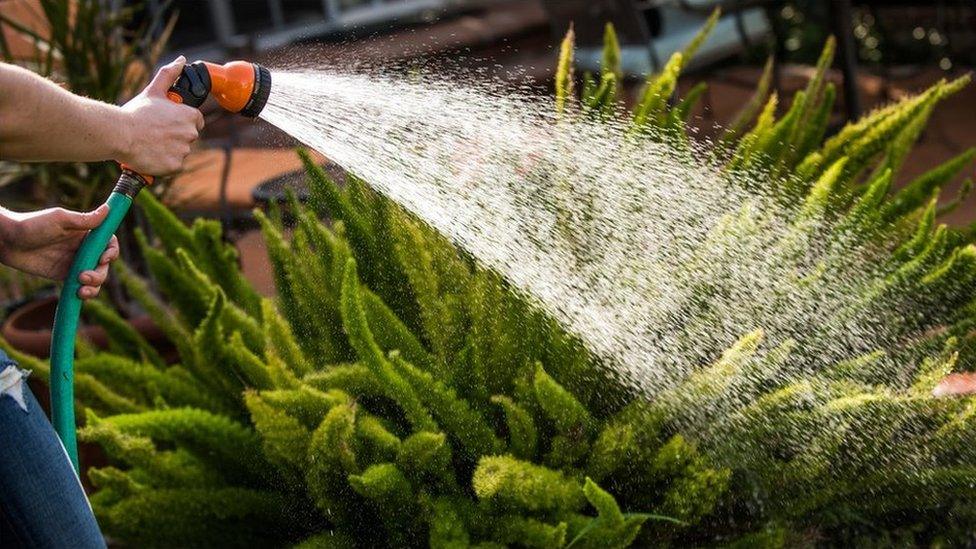
NI Water is closely monitoring water usage and, if demand becomes excessive, then a hosepipe ban is possible
However, the company said: "We are currently content with our level of storage."
It has advised customers to continue to use water wisely.
While NI Water is not introducing a hosepipe ban, the company said the situation was being closely monitored and, if demand became excessive, it would have to consider the possibility of a hosepipe ban in order to protect water supplies.
Related topics
- Published24 July 2022
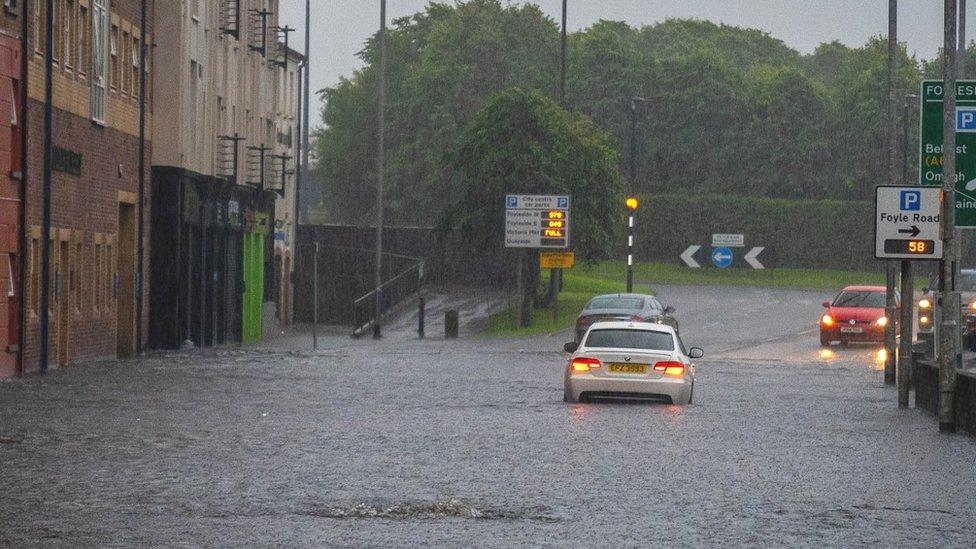
- Published16 July 2022
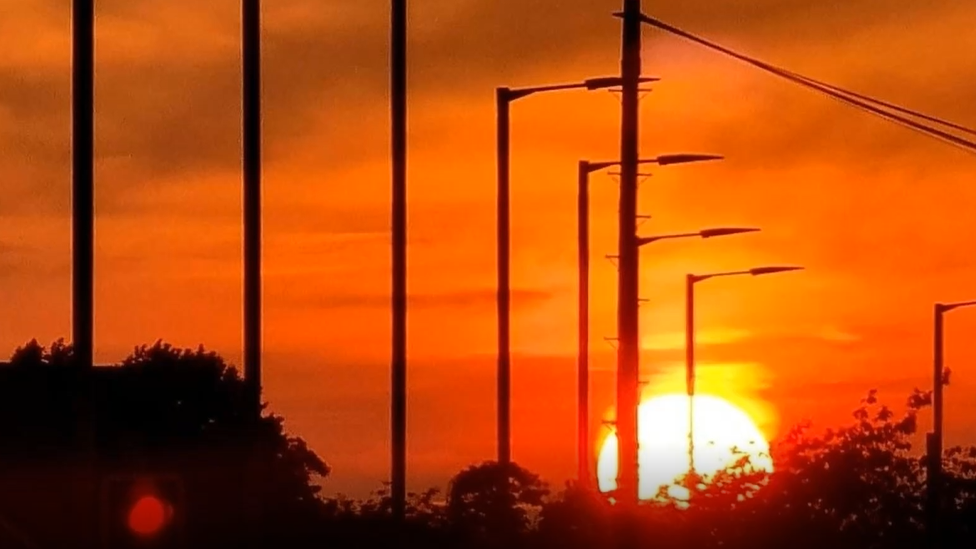
- Published16 July 2022
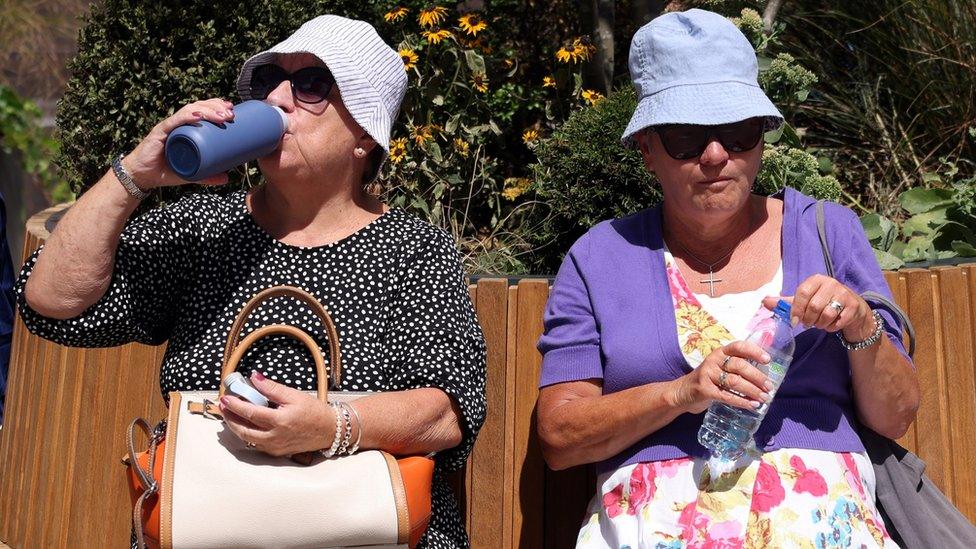
- Published15 July 2022
